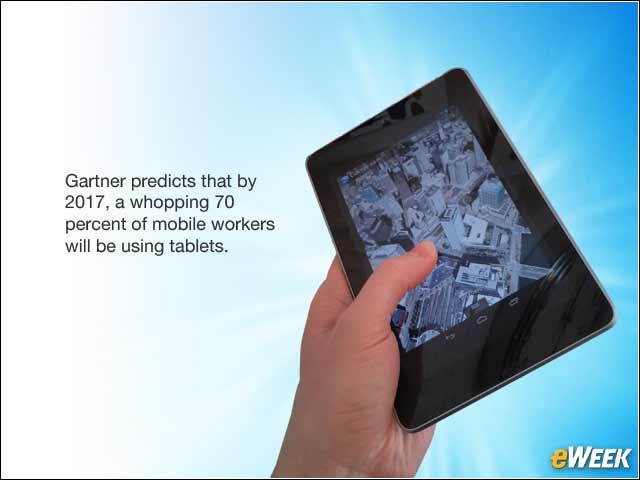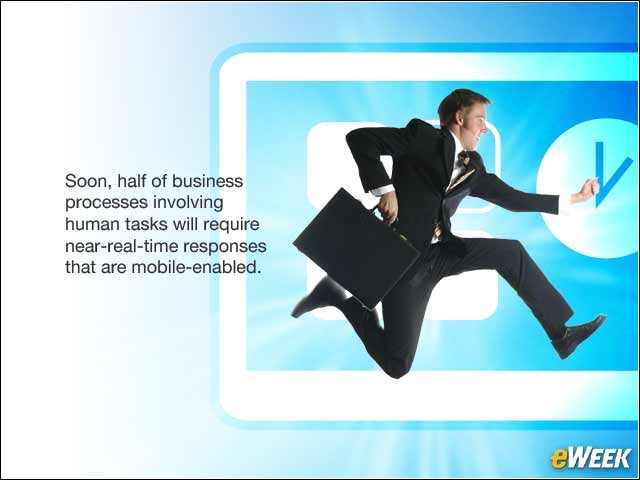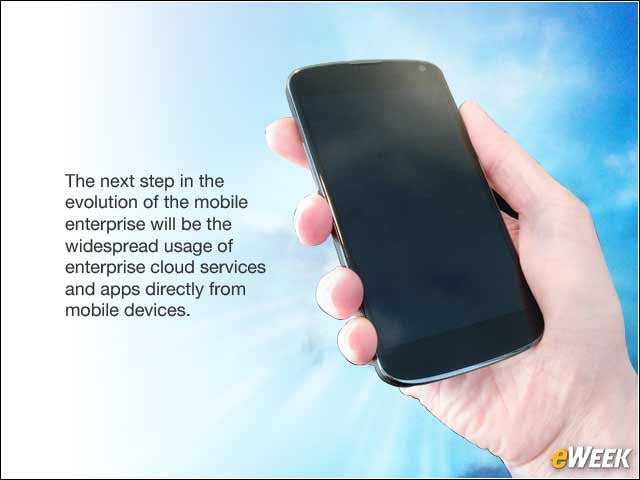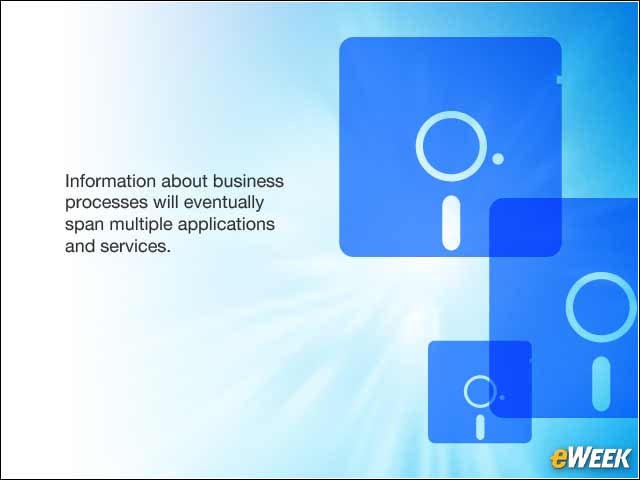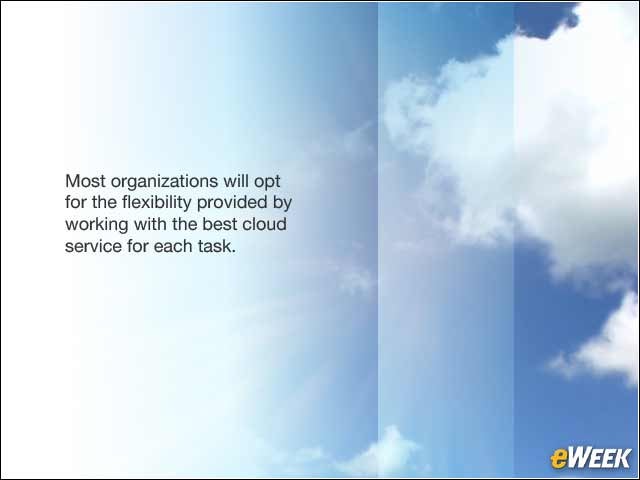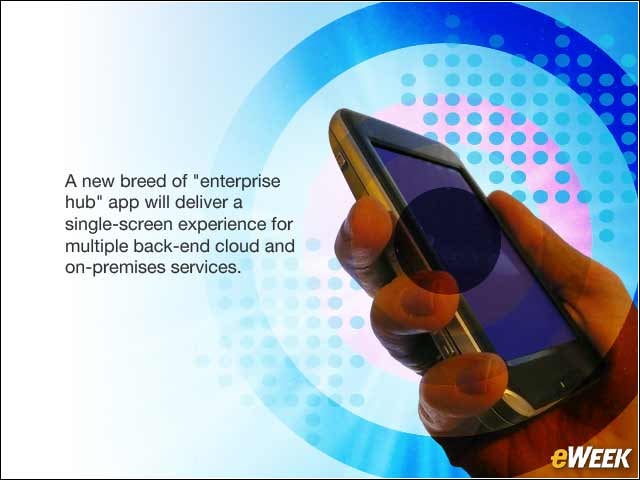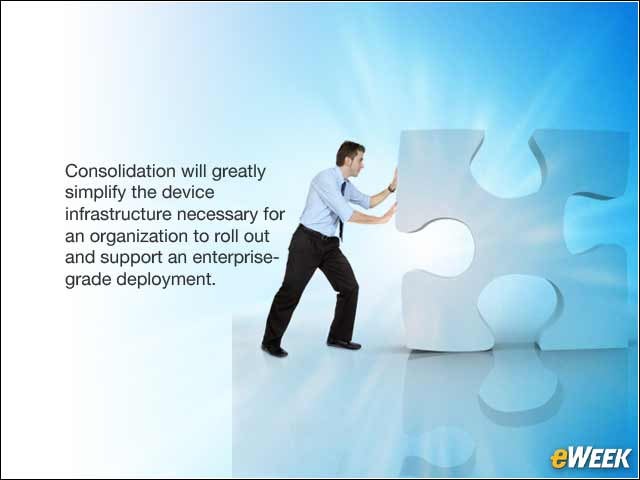eWEEK content and product recommendations are editorially independent. We may make money when you click on links to our partners. Learn More.
2The Mobile Enterprise App Market Is Poised to Explode
3Tablets Will Rule the Enterprise
The market penetration of tablets is growing much faster than any previous computing platform, reaching 80 million unit shipments per quarter only four years since the iPad’s launch. In fact, Gartner predicts that by 2017, a whopping 70 percent of mobile workers will be using tablets. Forrester predicts there will be approximately 900 million tablets in service by 2017. These tablets incorporate the appropriate form factor for editing documents and carrying out business tasks.
4More Business Processes Will Go Mobile
5It’s an App-Centric World
A lot of applications will be needed to enable those business processes on mobile devices. Herein lies the opportunity for application developers to cash in: Right now, those apps are mostly done by custom development. Commissioned development is, by far, the most lucrative revenue model in the business and productivity sector, bringing on average $67,000 per app per month. It is also very popular among developers, with 45 percent of organizations that focus on business apps currently delivering custom development services.
6Current Focus Is on Enterprise File Sync and Store
Early-adopter mobile workers already access a host of consumer cloud services, such as Office 365 and Salesforce1, for services such as file sync and storage, project management, enterprise social networking, as well as office tools such as Microsoft Office Online. While most of these services are currently consumer-grade, improvements in security models and enterprise IT governance are transpiring, and enterprise-grade services will proliferate over the course of the next few years.
7New Enterprise Apps Will Emerge
The next step in the evolution of the mobile enterprise will be the widespread usage of enterprise cloud services and applications directly from mobile devices. This is already starting to happen; case in point, SAP today makes available more than 60 apps on the Apple App Store. But usage is still low as the mobile user maturity evolves.
8Business Processes Will Span Apps and Services
Information about business processes will eventually span multiple applications and services. For example, a sales opportunity could span several applications and services: documents in SharePoint/Office 365, CRM (customer relationship management) data in Salesforce, and discussions in Yammer or Chatter. The onslaught of information from many disconnected enterprise services will make it virtually impossible for workers to follow everyday business processes.
9Silos Will Impede Expansion of the Mobile Enterprise
One way to overcome the poor user experience caused by information fragmented across multiple cloud systems will be the adoption of a single enterprise cloud ecosystem. These are being developed by vendors such as Microsoft with Office 365, Salesforce with Salesforce1, Oracle, Dell and IBM with the IBM Cloud Marketplace. These mega-vendors propose that enterprises integrate all business information in one central cloud ecosystem, thereby reducing the complexity of data retrieval and consumption. Most organizations will resist this new generation of vendor lock-in—and potential security risks—and opt for the flexibility provided by working with the best cloud service for each task.
10The Enterprise Hub Emerges to Reduce Information Overload
A new breed of “enterprise hub” app will emerge to deliver a single-screen experience for multiple back-end cloud and on-premises services. The ability to see all relevant business services—in the most appropriate context, and in one app—will simplify business task completion and will remove the limitations encumbered by the single-vendor ecosystem silo.
11Enormous Opportunity for App Developers
The opportunity to create this new enterprise user experience is attracting an army of skilled mobile app developers. In 2013, approximately 900,000 developers (out of 2.3 million mobile developers worldwide) mainly targeted the business app market. Many more will join their ranks, since business apps are built around more solid business models—often extending successful desktop/cloud service. The enterprise has a more sophisticated developer base and has more experienced developers.
12Security Consolidation Will Make the Mobile Enterprise More Manageable
As with many new markets, the mobile enterprise has spawned a host of new market segments, including a variety of device/application security and management options. The market will undergo a consolidation over the next two years, greatly simplifying the device infrastructure necessary for an organization to roll out and support an enterprise-grade deployment.
13MDM, File Sync and Storage Solutions Will Merge
Both MDM and file sync and storage solutions are becoming increasingly commoditized. To remain competitive, vendors are employing various strategies to differentiate, including offering loss-leader pricing to grab market share, trying to differentiate on features and building partner ecosystems. This effort will largely play out over the next 12 to 24 months, leaving only a few major players in the field; most of these players will offer both MDM and file sync and storage capabilities in the same product.


